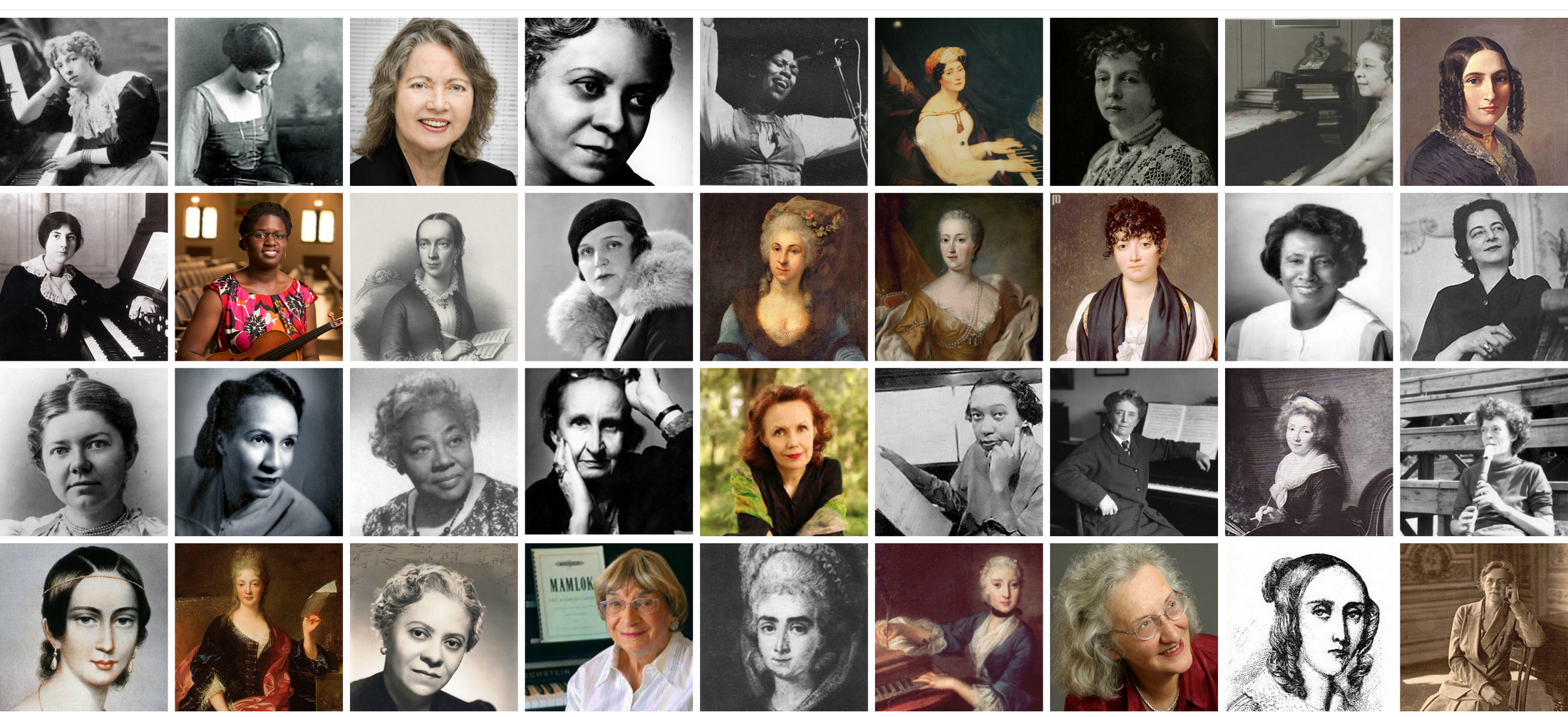Rebalancing the Music Canon
I’d like to share news about a project that I have been thinking about starting since I gave my keynote about the lack of women and people of color in digital music/data projects at the Music Encoding Conference in May 2018 at University of Maryland. I wanted to create a music data repository focused on works by un(der)-represented people with the aim of decentering the musical canon and making data-driven music scholarship more diverse and inclusive. In particular, the repository will contain a dataset of compositions spanning a large historical period by an un(der)-represented group (primarily women and people of color) that has generally been left out of (big) data driven scholarship work.
There are a number of resources out there that can aid in the creation of this repository, one in particular stood out to me as a good candidate for the first corpus. I reached out to Molly Murdock (Eastman School of Music) and Ben Parsell (St. Olaf College) of Music Theory Examples by Women and discussed my idea of encoding a small corpus of works by women, what the benefits of this would be, and how the data could be used by other scholars, students, and researchers for a variety of purposes, including rendering the scores from MEI to HTML using a tool called Verovio.

This appealed to them so I got to work by training two of our Boston College Libraries Digital Studio students (Nicolas Sucre and Alben Chingo) over the summer of 2018. They tested a workflow that I put together (currently an internal manual) that provided guidance on how to extract, correct, and encode data from this initial corpus. The testing and workflow has developed into an upcoming publication with Raffaele Viglianti (MITH) for the DLF Digital Library Pedagogy Cookbook, which will be shared widely once it is published online.
The music data repository for Rebalancing the Music Canon: Collaborative Music Encoding project is now available online. In this repository we will keep the extracted, corrected, and encoded data. You can also visit the project website to read more about the process, corpus 1, how to contribute, and the collaborators. We hope to have additional collaborators joining us soon. If you are interested in contributing to this project in any way, please feel free to contact me directly.